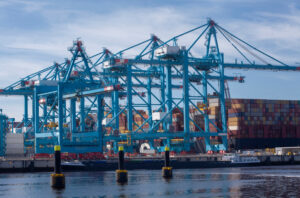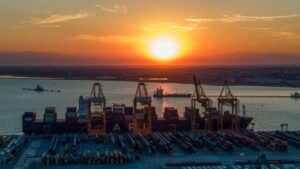The Port of Tripoli is to become the new port of call for major shipping lines following the destruction of the Port of Beirut.
Several shipping lines have now confirmed the redirect to the Port of Tripoli in an effort the keep Lebanon, a country heavily reliant on imported goods, supplied.
The access to the Port of Beirut is currently not permitted and the port remains closed.
A.P Moller-Maersk, CMA CGM and Hapag-Lloyd will all use the Port for calls that would have been scheduled for Beirut.
At the time of the explosion on 4 August only CMA CGM reported a vessel in the area which it said was left undamaged.
All three shipping lines have confirmed damage to offices and headquarters in the Port of Beirut area.
Insight: Port of Beirut explosion leaves supply chain in tatters
Maersk said that it is expecting the port in Beirut to remain closed for the next few weeks. It is working on a solution with the port in Tripoli to enable calls of its vessels there.
Hapag-Lloyd will send its East Med Express service, planned for the 7 August, to Tripoli to discharge its cargo and another service will be sent to Demietta, Egypt.
Meanwhile, CMA CGM has acknowledged that an operational organisation has been put in place to establish a logistics hub in Tripoli, Lebanon. CMA CGM had already opened an office at the Port of Tripoli in 2017 and became the first major shipping company to add a call at the new port.
While Tripoli is a growing port and will serve as a back up during the current crisis it may be a big ask for the port to take over all the cargo from the Port of Beirut long-term.
Notably the port has a much shallower draft as well as a smaller container handling throughput. The Port of Beirut is known to handle around one million TEU annually.
The Port of Tripoli is however undergoing a modernization and expansion project in efforts to become an alternative to Beirut.
The blast at the Port of Beirut is thought to have been cased because of the unsafe storage of ammonium nitrate at a warehouse in the Port area since 2013.









